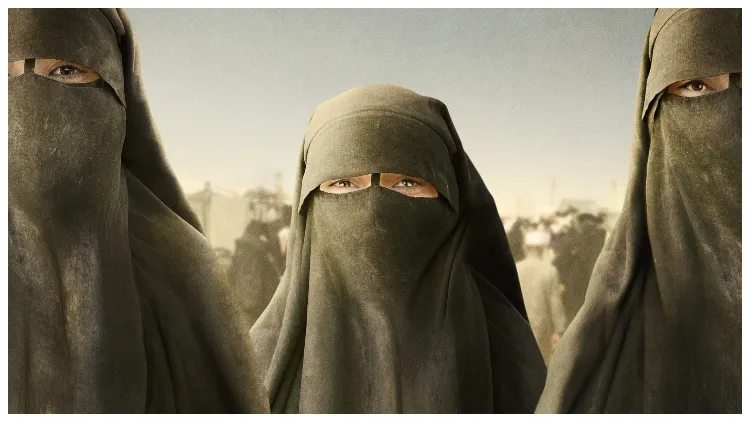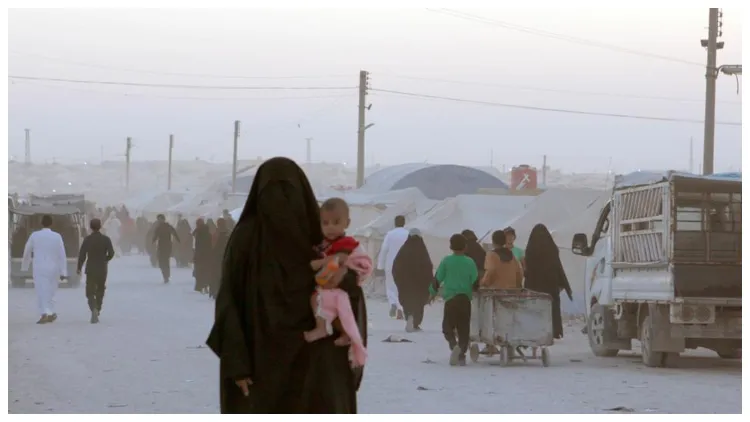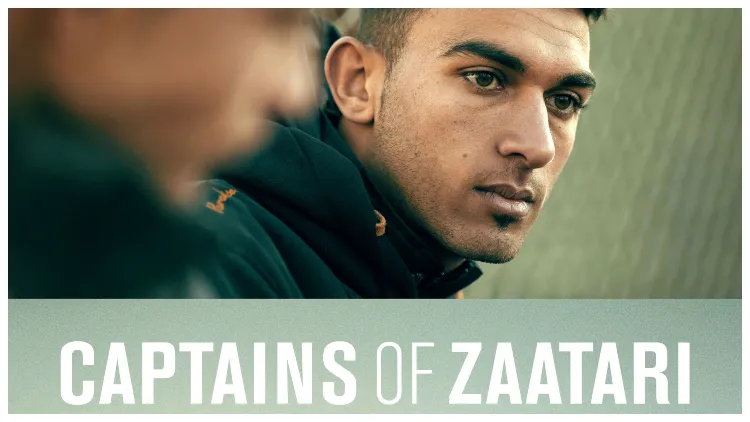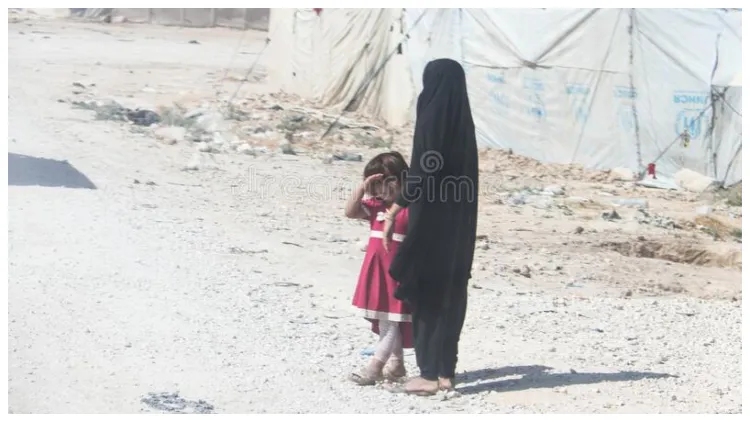
Ajit Rai/Cairo
Ten documentaries screened at the fifth Al Guna Film Festival in Egypt portray young filmmakers risking their lives to speak up on burning issues of the region. No wonder they are also getting appreciation from across the world.
These films help in sensitizing the world towards the region’s issues like human rights, religious fundamentalism, and the refugee problem. For example, Ali al Arabi's Captains of Zaatari (Egypt) and Sara Sajali's Back Home, Hogir Hirori's 'Sabaya' (Kurdistan) and 's Zeina Dakache's 'The Blue Inmates' (Lebanon) are movies that touch the burning issues. Besides, a great collection of documentary films made in the Netherlands, Russia, Ukraine, Norway, and Switzerland are being shown.
The documentary Sabaya by Swedish filmmaker Hogar Hirori of Kurdish origin highlights the inhuman situation arising out of the rise of the Islamic State (ISIS)terrorists’ action of taking thousands of Muslim women as sex slaves in Sabaya (sex slaves).

A sex slave with his child at the ISIS camp
Hogir Hirori paid 40 secret visits to the Yazidi Home Center in northern Syria. He visited in the night risking his life and shooting the film. He interviewed women who were abducted and made sex slaves by Islamic State (ISIS) terrorists.Interacting with the audience, Hogir Hirori after the film's screening at the Al Guna Film Festival said that he did not know English and would speak in Arabic or Swedish.
With just a smartphone and a pistol, Mahmoud, Ziad, and his companions rescued 258 Yazidi women, who were kept as sex slaves, in the night from Syria's most dangerous camp, al-Hol. Of them, 52 women were made pregnant after being raped and they gave birth to their children. Among them was a nine-year-old girl, Mitra.
In the film, a former sex slave says that ISIS men murdered her father and brother and forcibly took her away. They used to beat her and watch porn (porn videos) on the phone. She asks what should she do to the child born from rape? Another Sabaya asks, "If there is Allah, how did He allow all this to happen in the name of Islam?"
A third woman says she was sold and bought 15 times on the Syria-Iraq border. She was imprisoned by the Islamic State for five years. The fourth woman burns her black burqa as soon as she is released from captivity. The fifth woman says that she has parents, brothers, and sisters, but she is alone in this captivity.

Hogir Hirori
When Mahmud and his associates were escaping in a car after rescuing the women, they saw several villages on fire. It turned out that thousands of Muslim women brought from 58 countries were been lodged in camps in these villages.
ISIS attacked the Sinjar district, adjacent to the parts of Syria and Iraq that were under the control of the group. In August 2014 they abducted thousands of Yazidi women from a town with 3 lakh people and made them sex slaves. When the Syrian army drove out ISIS with outside support, most of the sex slaves were holed up in the al-Hol camp from where Mahmud and his accomplices liberated them.
The director of the film Sabaya, Hogir Hiori was born in Kurdistan and came to Sweden as a refugee in 1999. The film has been awarded the 'World Documentary Prize' at the Sun Dance Film Festival and the Jury Prize at the Hong Kong International Film Festival. It has been shown at 50 film festivals around the world and broadcast by about 30 television channels.
The camera in the film shows real persons, places, and events without tampering with the facts. The tormented women are real and so are their dialogues. It’s indeed heartbreaking to see the inhuman condition of their camps.
The documentary Captains of Zaatar" focuses on true events from the lives of two young football players, Mahmoud and Fauji. They live in the Zaatari refugee camp in Jordan and get an opportunity to play international matches. Mahmood and Fauji practice football day and night as they believe the game will give them freedom.
Mahmud and Fauji are selected for international tournaments and they come to Doha. Both travel in an airplane for the first time and stay in a five-star hotel. Their situation is close to the childhood of great footballer Diego Maradona who was raised in the slums of Buenos Aires, the capital of Argentina.

A Muslim woman at the camp of ISIS
Speaking to the media after the match, Mahmoud says the displaced Syrian people living in refugee camps need opportunities and not mercy. Three years later, we see that these two players are giving football training to the kids in their camp and yet remain pessimistic about their future.
Sara Shajli's documentary Back Home is her story of returning from Paris to Egypt during the Corona pandemic and rediscovering her roots.
The Lebanese The Blue Inmates by Jeanina Dakache documents theatrical therapy performed for inmates in prisons. Jeanina Dacache first went to Beirut's women's Babada prison and through a play brought their fears and dreams to the fore. The film is part of a longer project in which the problems of inmates who have become psychopaths in the Blue Building of Roumeh Jail are told through drama.
Guido Hendrix's A Man and a Camera creates the thrill of cinema. An enthusiastic young man carrying a camera spontaneously starts shooting people's daily routine in a colony one fine morning. In this sequence, he has many unexpected experiences; every human face tells a different story.
Svetlana Rodina of Switzerland and Laurent Stoop's film Ostrov - Lost Island is about a Caspian Sea island that once housed 3,000 families and only 50 survive and they are ready to flee. There is no facility for human life here. A tribal resident named Ivan writes a letter to Russian President Vladimir Putin urging him for help.
(The author is a well-known film critic)
